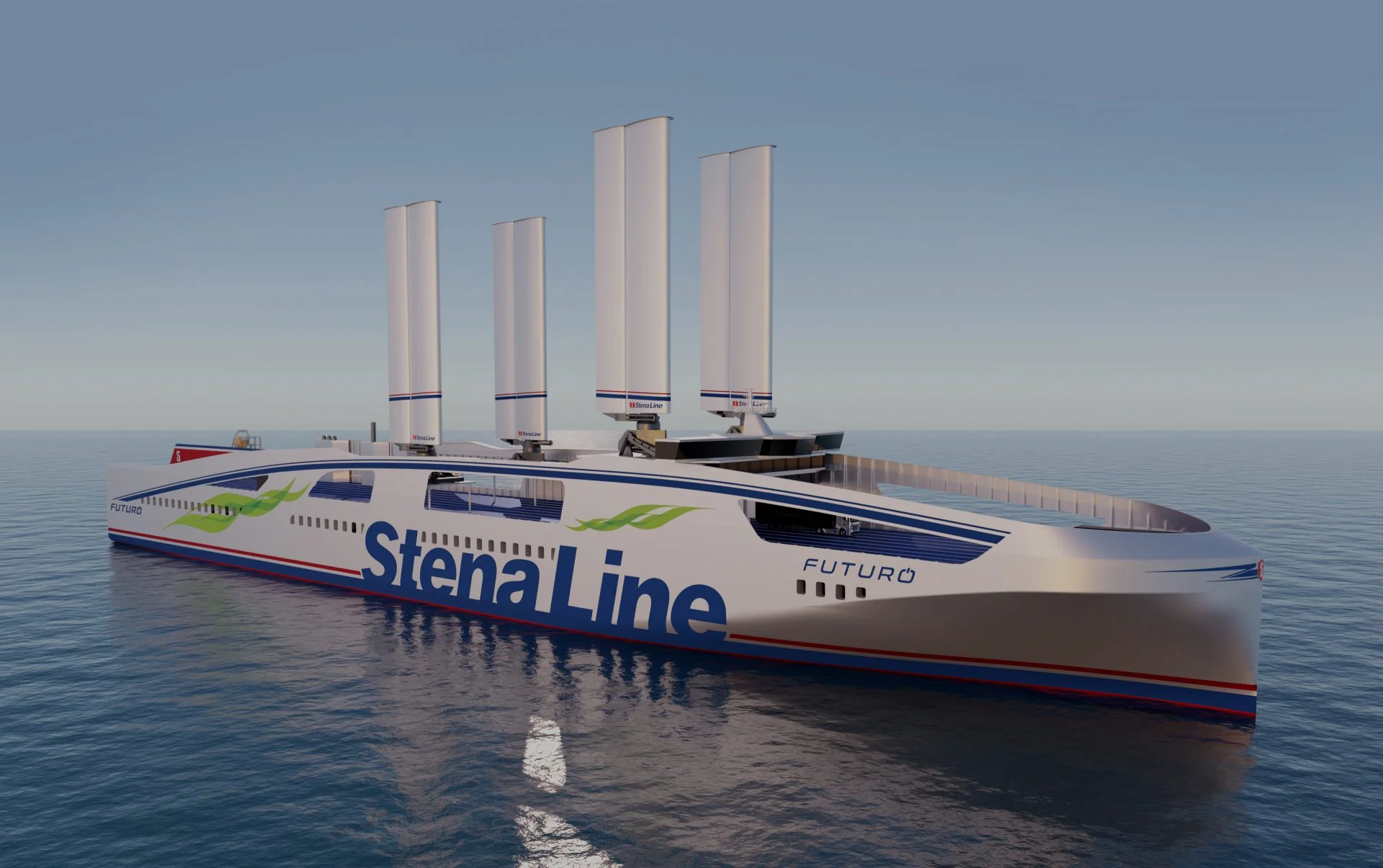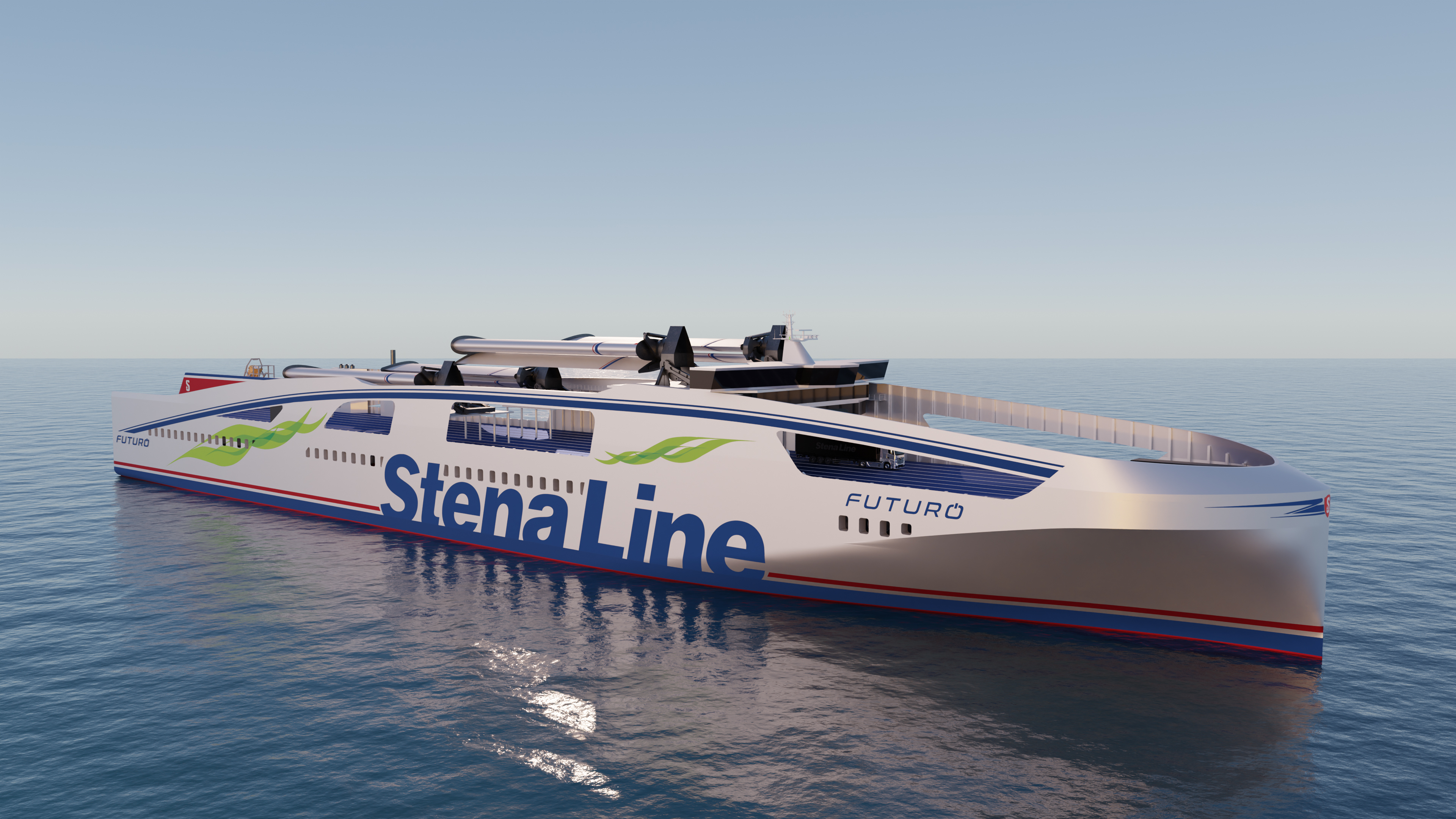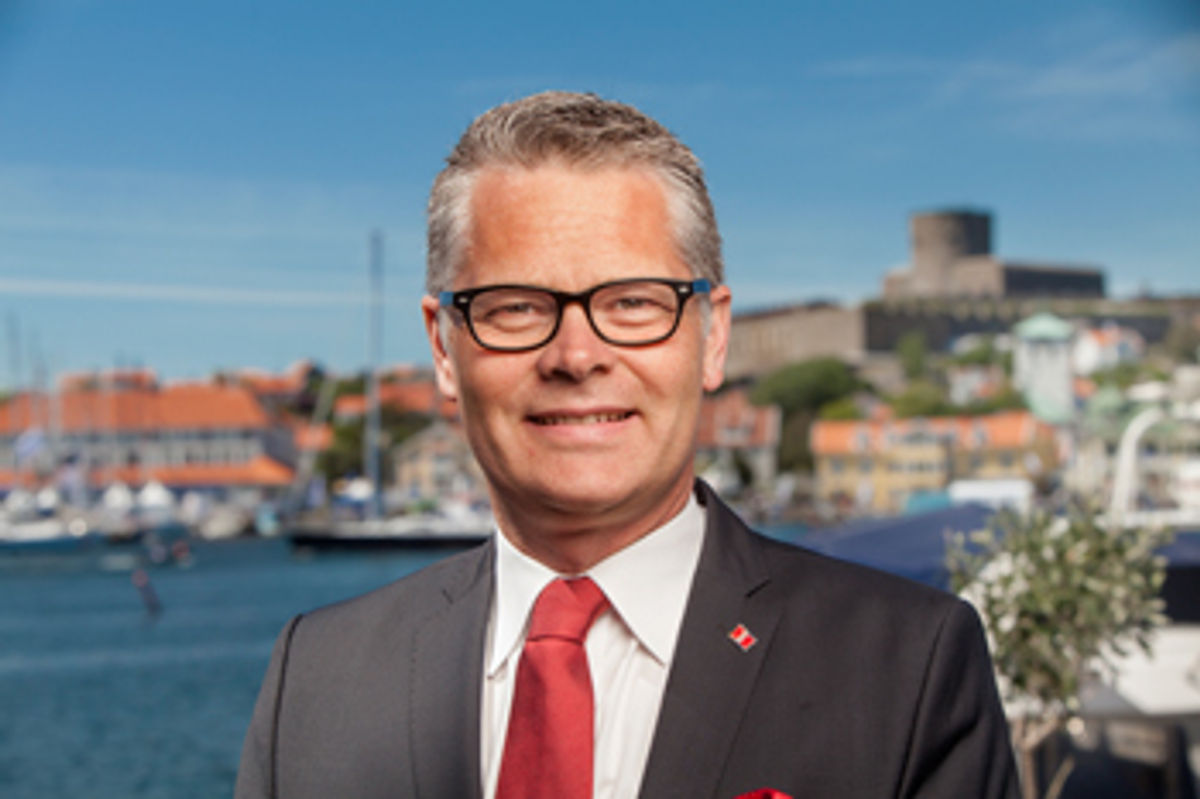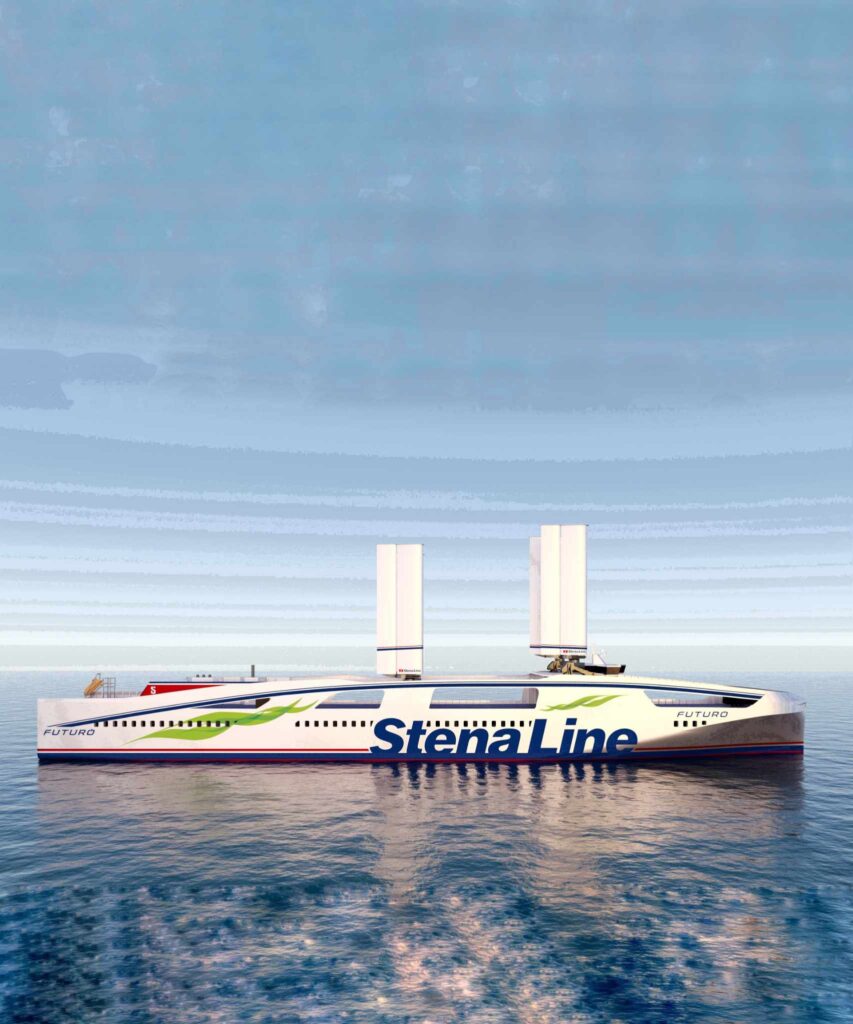The Swedish shipping company Stena Line presented today the “Stena Futuro” project for the creation of a 240-metre-long ro-ro vessel capable of reducing the consumption of energy of at least 20% using the technologies currently Available.
“The goal – explained Nicolas Bathfield, project manager of Stena Teknik who participated in the project – is that the ship has the lowest fuel consumption on the market”.
Reduce fuel consumption.
The design of the ship was focused on both on the optimisation of the hull and superstructure, in order to maximising the use of cargo space, both on the reduction of weight of the ship and on the optimization of hydrodynamics, and aerodynamics to reduce fuel consumption.

Related :Stena Line and Norsepower team-up hybrid RoRo
The environmental impact of the ship
In addition, Technologies used to limit the environmental impact of the ship during its operation, starting with a hybrid propulsion at Fuel-efficient batteries and engines that can operate with different types of fuel and be able to operate partially with the power supply alone during certain phases of navigation, for example in and out of ports.

A system of Air lubrication
The ship is expected to install solar panels to contribute to energy needs and a system of Air lubrication on the Ro-Ro hull to reduce friction with water. In addition, a heat recovery system will allow to use engine exhaust gases to meet the needs of heating on board the ship and support the generation of electrical energy.
Related :Stena Line : First of the two all-new NewMax hybrid vessels
Installation of four high sails
The project also includes the installation of four high sails 40 meters that can be retracted in case of need, for example example for the passage under a bridge. Relatively energy and operational efficiency of the sails, Bathfield has specified that “the tests have shown that Stena’s sails future could potentially lead to savings of fuel up to 15%. We have also shown that the ship Meets all stability and manoeuvrability requirements in scenarios such as sudden changes in wind or sudden changes in route”.
Pay a vital part for Stena Lines

The ship design will play a vital part for Stena Lines future tonnage planning the coming years. Currently, there is no finalized plan for the production of Stena Futuro.
“We aim to help lead our industry in achieving the global climate goals. We work toward this every day in our ongoing operations, but we also need to be at the forefront in developing tomorrow’s vessels. The Stena Futuro concept is an important step in that direction,” says Niclas Mårtensson,CEO of Stena Line.




